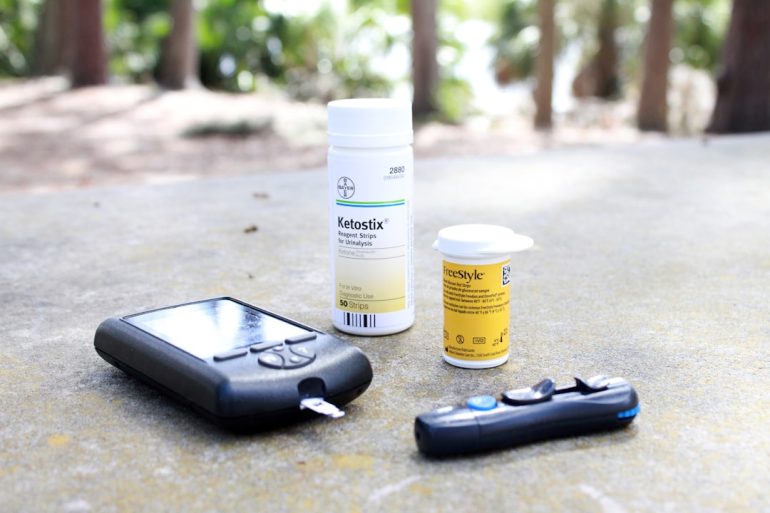The Ultimate Guide to Becoming a Successful Transaction Monitoring Investigator in the U.S.
In the dynamic and highly regulated financial landscape of the United States, the role of a Transaction Monitoring Investigator has become increasingly vital. These professionals act as the gatekeepers of financial integrity, identifying suspicious activity within financial transactions that may indicate money laundering, fraud, or other illicit activities. With regulatory scrutiny intensifying, particularly from agencies like FinCEN and OFAC, organizations are placing significant emphasis on building effective anti-money laundering (AML) programs—and skilled investigators are at the core.
What is a Transaction Monitoring Investigator?
Table of Contents
A Transaction Monitoring Investigator is a compliance professional responsible for analyzing an institution’s financial transactions to detect signs of suspicious or potentially illegal activity. Working within the framework of Bank Secrecy Act (BSA) and Anti-Money Laundering (AML) regulations, these individuals review data to detect anomalies, prepare reports, and file Suspicious Activity Reports (SARs) when necessary.

These investigations play a critical role in preventing financial crimes such as terrorism financing, human trafficking, and drug smuggling. Their findings can lead to internal actions, law enforcement investigations, or regulatory penalties for institutions that fail to comply with U.S. regulations.
Key Responsibilities of a Transaction Monitoring Investigator
- Reviewing alerts: Generated by automated AML systems that flag potentially suspicious transactions.
- Conducting investigations: Analyzing transaction histories, customer profiles, and business relationships.
- Filing SARs: Preparing and submitting Suspicious Activity Reports to regulatory authorities.
- Escalation: Referring complex or high-risk cases to senior compliance officers or law enforcement as necessary.
- Continual learning: Keeping abreast of updated regulatory guidelines and money laundering typologies.
Successful investigators employ both quantitative and qualitative techniques to understand patterns and behaviors that standard systems may miss.
Skills Required to Succeed in Transaction Monitoring
Being a highly effective Transaction Monitoring Investigator demands a unique combination of skills and mindset. Below are several core competencies essential to the role:
- Analytical Thinking: The ability to connect the dots between transactions, clients, and behaviors.
- Attention to Detail: Identifying subtle discrepancies or irregularities that may suggest suspicious activity.
- Financial Literacy: Understanding how money flows through different types of accounts and institutions
- Knowledge of Regulations: Familiarity with BSA, AML guidelines, OFAC sanctions, and other compliance rules.
- Communication Skills: Clearly documenting findings and defending them if necessary before regulators or auditors.

Educational Background and Certifications
While there isn’t a universal educational requirement, most Transaction Monitoring Investigators possess the following qualifications:
- Bachelor’s degree: Typically in finance, accounting, business, criminal justice, or a related field.
- Master’s degree (optional): A master’s in business administration (MBA) or forensic accounting can be valuable for career growth.
Equally important are industry-specific certifications that validate expertise and provide a competitive edge:
- Certified Anti-Money Laundering Specialist (CAMS): Offered by ACAMS, this is the gold standard certification for AML professionals.
- Certified Financial Crime Specialist (CFCS): Offered by ACFCS, this covers a broader range of financial crimes.
- Certified Fraud Examiner (CFE): Ideal for those with a focus on financial fraud.
How to Start Your Career as a Transaction Monitoring Investigator
Breaking into the field starts with either entry-level roles or relevant internships. The following steps can help you build your career path:
- Gain Foundational Knowledge: Study financial compliance regulations and develop strong research skills through coursework or self-study.
- Complete an Internship: Many financial institutions offer internships in compliance departments where one can gain hands-on experience.
- Secure an Entry-Level Job: Positions like AML analyst, compliance associate, or fraud detection specialist offer practical experience.
- Pursue Certification: Once you have foundational experience, get certified to qualify for higher-level positions.
- Network: Attend industry conferences like ACAMS or ACFCS, and join professional forums or communities.
Career Development and Growth Opportunities
With several years of experience, investigators can advance into more senior roles including:
- Senior Transaction Monitoring Investigator
- AML Compliance Manager
- BSA/AML Officer
- Director of Compliance
- Internal Auditor or External Consultant
Experts in this field often pursue careers at major banks, fintech companies, regulatory bodies, and consulting firms. Salaries vary by experience and location, but mid- to senior-level investigators can earn six-figure incomes.
Compliance Technology & Tools
Technology plays a critical role in transaction monitoring. Familiarity with the following tools can make investigators more efficient and attractive to employers:
- Actimize, SAS, or Oracle Mantas: Widely used AML surveillance platforms.
- Excel and SQL: For data analysis and trend identification.
- Case Management Software: Tools like NICE Actimize Case Manager or FCRM for workflow tracking.
- Public Databases: LexisNexis, World-Check, and government watchlists aid in background research.
Staying Ahead of Financial Crime Trends
The AML landscape evolves quickly, and successful investigators keep up with emerging threats such as:
- Cryptocurrency-related money laundering
- Trade-based money laundering
- Use of shell corporations
- Mainstream banking exploitation by organized crime syndicates
- Cybercrime and identity theft
To stay informed, professionals frequently join organizations, attend training sessions, read publications, and earn continuing education credits.

Challenges Faced by Transaction Monitoring Investigators
Though rewarding, the job is not without its hurdles:
- High Alert Volumes: Investigators are often inundated with hundreds of alerts daily due to system sensitivity.
- Pressure to Comply: Regulatory audits can be highly rigorous, with institutions risking hefty fines for non-compliance.
- Data Silos: Limited access to complete customer or transaction history can hinder thorough reviews.
- Burnout: The repetitive and investigative nature of the job can sometimes lead to fatigue.
To succeed, investigators must balance accuracy with efficiency while maintaining professional curiosity and ethical diligence.
Conclusion
Becoming a successful Transaction Monitoring Investigator in the U.S. requires dedication, curiosity, and a structured approach to learning. From foundational education to certifications and hands-on experience, every step is essential for building a long-term career in financial crime prevention. With financial threats evolving and regulations tightening, skilled investigators are more valuable than ever in safeguarding the integrity of financial systems.
Frequently Asked Questions (FAQ)
- What industries hire Transaction Monitoring Investigators?
- Primarily banking and financial institutions, but also fintech firms, government agencies, investment firms, and consultancies.
- Is remote work available for this role?
- Yes, many institutions offer remote or hybrid work options, especially after the rise of digital compliance tools.
- How long does it take to become a Transaction Monitoring Investigator?
- With a relevant degree and internship, you can enter the field within 1–2 years. Advanced roles may require 3–5 years of experience.
- What is the job outlook for this career?
- Very strong. As financial regulations evolve, demand for skilled transaction monitoring professionals continues to rise.
- Do I need to have







